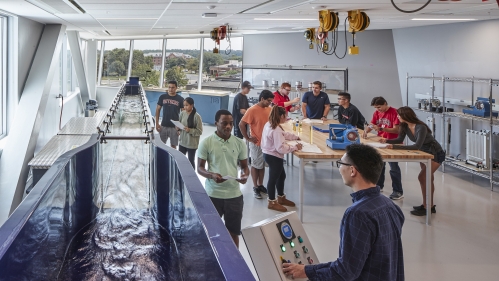
Undergraduate Admissions
Welcome
The Department of Civil and Environmental Engineering (CEE) offers majors in both Civil Engineering and Environmental Engineering providing students the opportunity to tackle issues of global importance, including the sustainability of infrastructures, the impact of transportation on the environment, deploying emerging concepts and technologies in the construction of new facilities, and the impact of engineering solutions in a global, economic, environmental, and societal context.
Undergraduate Applicants
- First-year Applicant Requirements (high school and international applicants)
- Transfer Applicant Requirements (within Rutgers and outside Rutgers)
All applicants must complete the application for admission to Rutgers University-New Brunswick.
